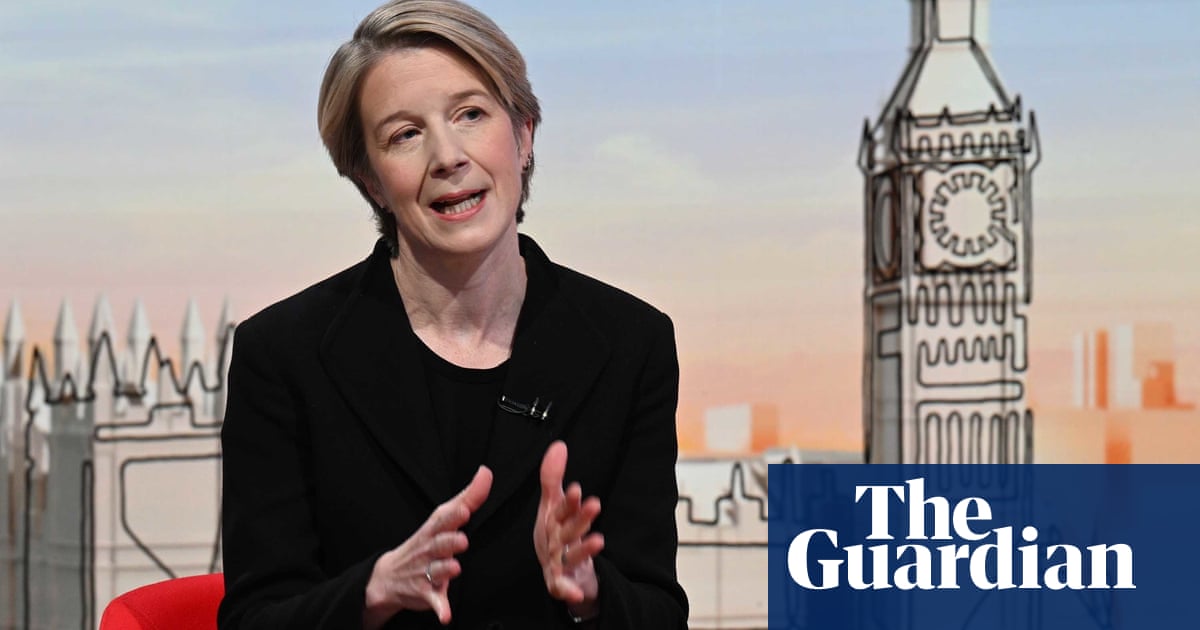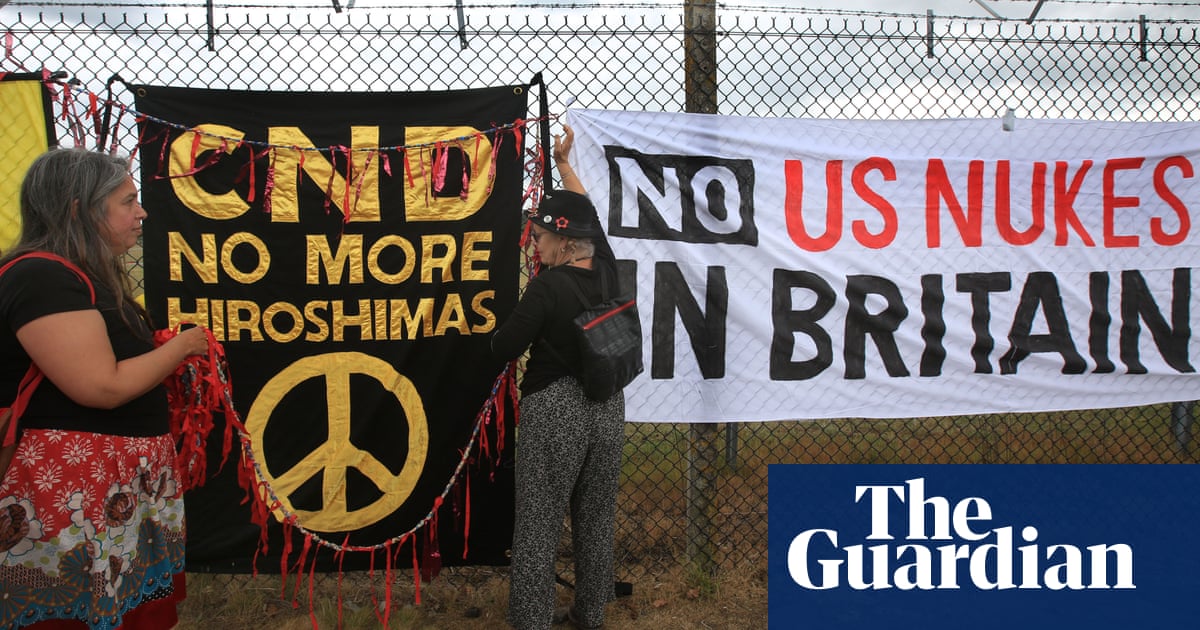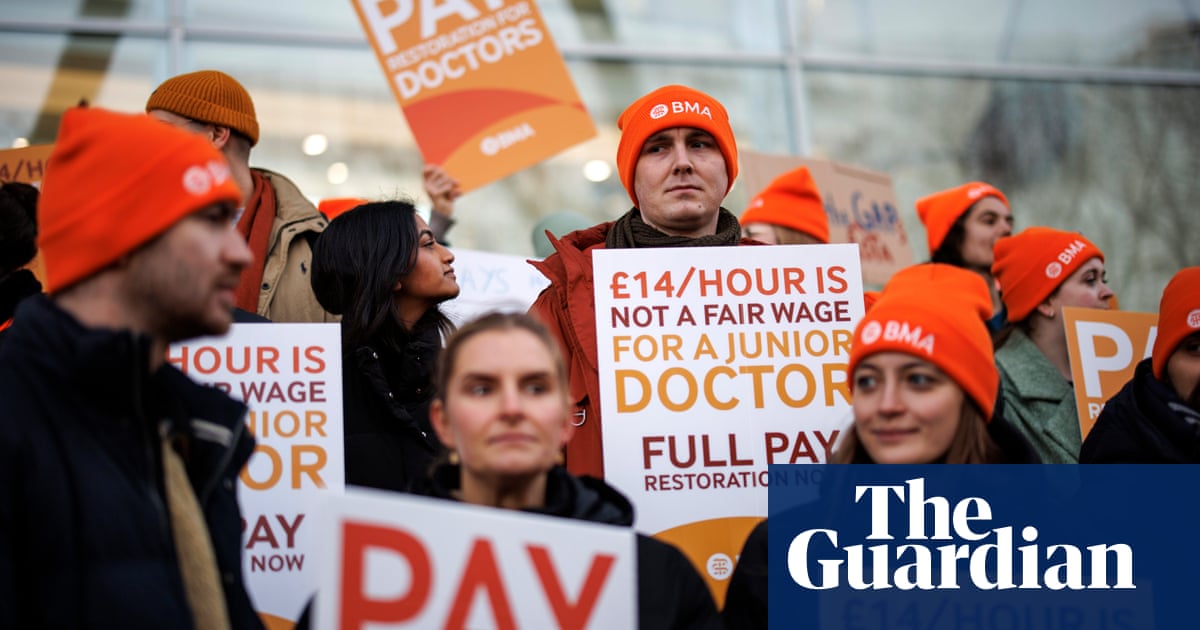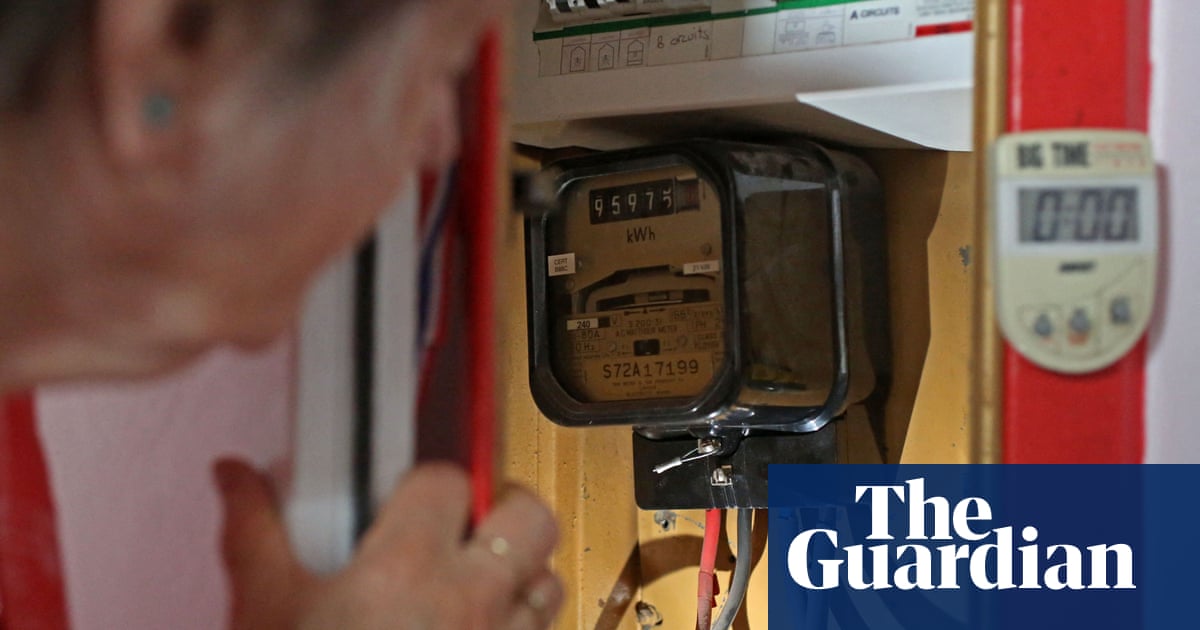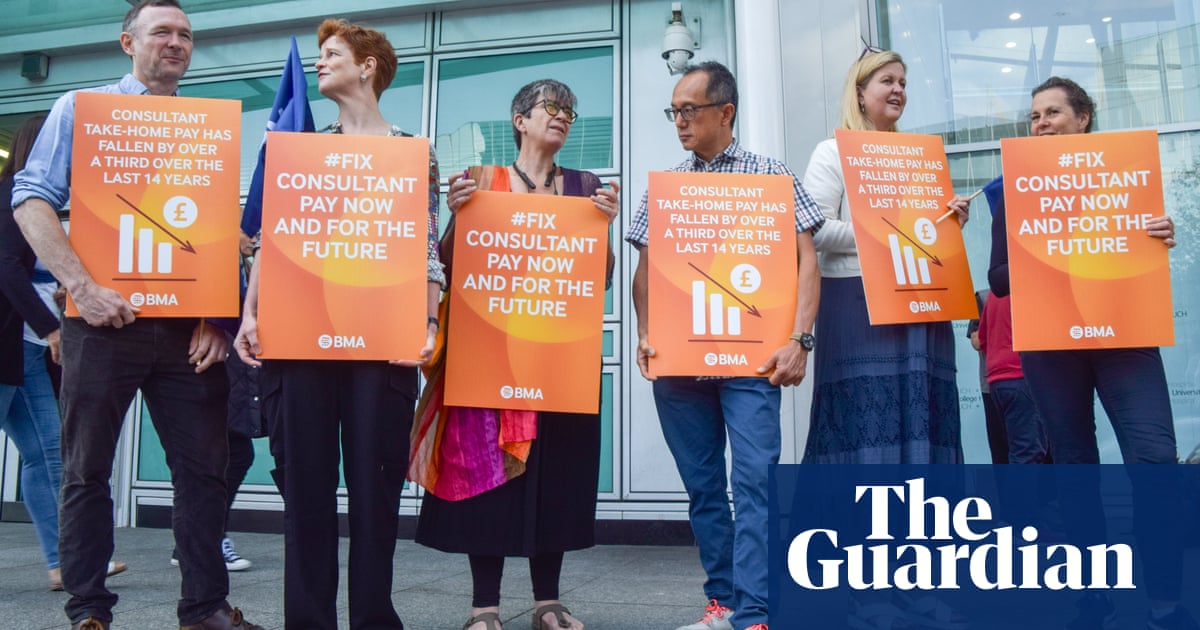
The cost of the NHS strike action is “eye-watering” and could run into billions of pounds, a health boss has said as he urged ministers to resolve the row over pay.
Matthew Taylor, the chief executive of the NHS Confederation, which represents the healthcare system in England, Wales and Northern Ireland, said some NHS trusts were losing £500,000 for every day of industrial action.
Consultants in England began striking for the first time in a decade on Thursday after eight months of industrial action by other staff across the health service. Their strike will continue until 7am on Saturday, and they will strike again for 48 hours in August.
Hospitals are having to spend vast sums on agency workers to cover shifts during the strikes and administration costs to cancel and reschedule hundreds of thousands of appointments, procedures and operations. Taylor said the strikes were also derailing efforts to tackle the backlog of 7 million patients waiting for care.
“Many health leaders have told us they are deeply concerned by the long-term impact prolonged industrial action is having on the NHS’s ability to reduce waiting lists, improve staff morale and patient satisfaction,” Taylor said. “They feel like the government has buried its head in the sand by refusing to acknowledge this.
“Several members have estimated that each previous round of industrial action from junior doctors has cost them around half a million pounds, so there is an increasing financial toll to this which could run into many billions the longer the walkouts continue.”
He added: “The longer these strikes continue, the more money the NHS will have to spend on their eye-watering costs as waiting lists rise further and vital shifts need to be covered at higher rates. The direct costs of April’s industrial action involving junior doctors has been estimated to be around £100m. However, this does not include the wider loss of earnings from elective or other activity not being carried out. The true cost is likely to be much higher.
“Some leaders have told us their trusts have seen losses of around £500k each day from the strikes, so if junior doctors alone were to strike each month, it’s possible this bill could run into billions.”
Taylor urged ministers to “get back to the table to find a solution that gets the NHS moving again”.
At a rally by senior doctors at the central London headquarters of the British Medical Association (BMA) on Thursday, the union said the consultants’ strike was a last-ditch attempt to save the profession in the face of years of pay erosion and undermined patient care.
The BMA consultants committee chair, Dr Vishal Sharma, said: “When we say strike action is a last resort, we really mean it is a last resort. We have tried everything to get them to listen. We have demonstrated that our pay has fallen not only against inflation but against all our comparator groups. For 15 years, we have pleaded for the government to listen but they have ignored us and inflicted pay cut after pay cut after pay cut.”
Steve Barclay, the health secretary, has told consultants they will receive a 6% pay rise but the BMA has called this derisory and said doctors’ take-home pay has fallen in real terms by more than a third over the past 14 years.
Sharma said pay had fallen by 35% since 2008, “a staggering figure which means effectively we are working for four months of the year for free”.
According to the BMA, consultants on a 2003 contract have a starting salary of £88,364 in basic pay, rising to £119,133 after about 19 years.
The Department of Health says extra payments such as clinical excellence awards and cash for being on call would take the average NHS pay for consultants in 2023-24 to about £134,000.
Patients expressed mixed views about the latest strike action. Sarah Goodchild, 57, said she “doesn’t have a lot of sympathy” for the consultants after her hospital appointment in relation to an endocrine condition, organised nine months ago for Thursday, was cancelled.
“I’m quite angry actually because I’ve been waiting a long time for the appointment,” said Goodchild, a silversmith from Norfolk. “This is going to cause delays in detection, delays in treatment, and I think people are going to die.”
Another patient, whose life was saved by the NHS, said she supported the strike action but only if it ended quickly. Manou Dhama’levy, a patient at University College London hospital for nine years, said: “I’m unhappy about the strikes, especially senior doctors, but they do such an amazing job. I am behind them, as long as it doesn’t last too long.”




